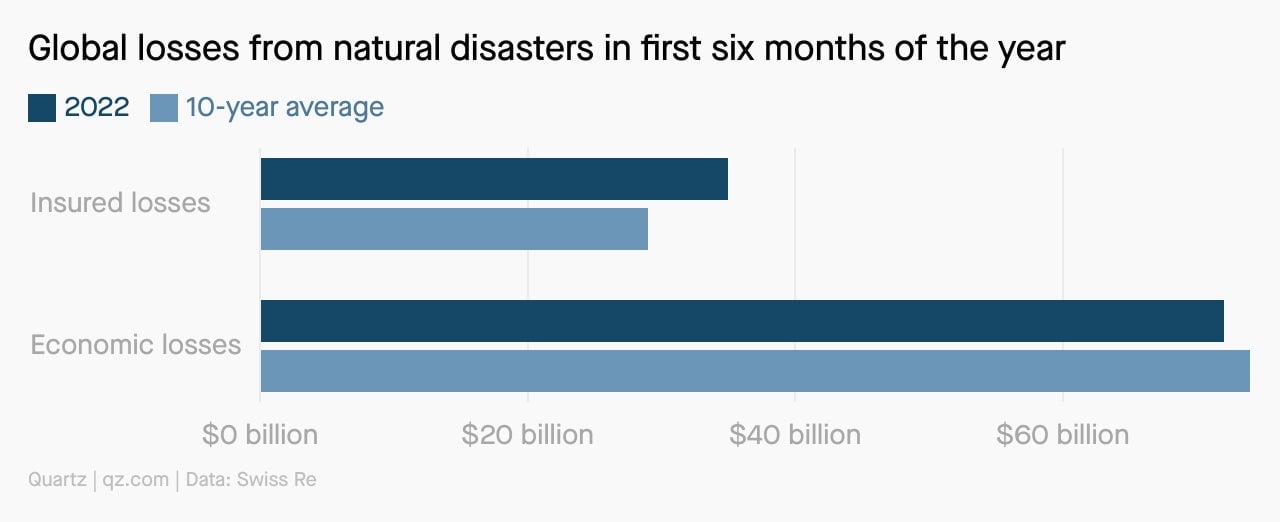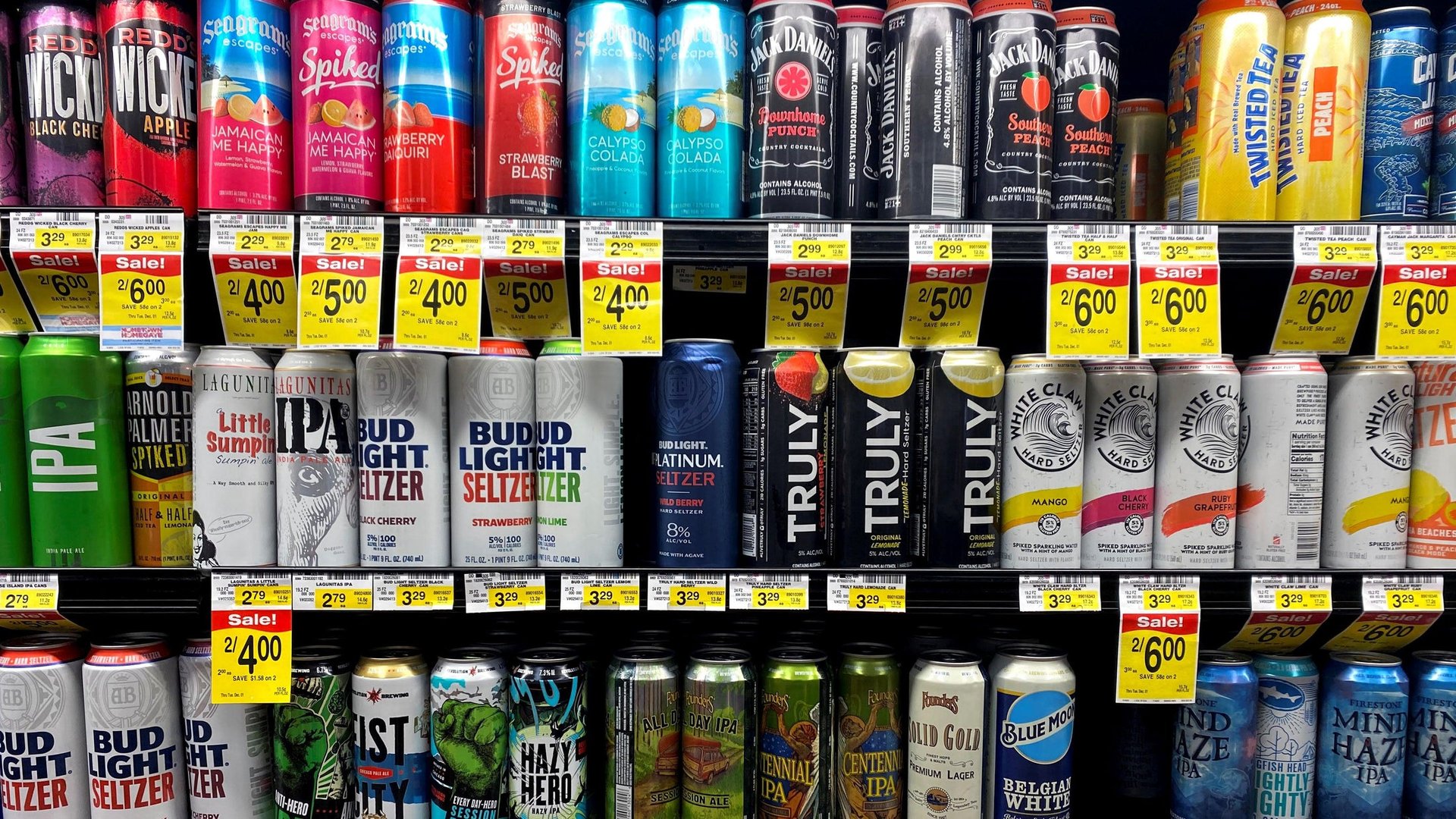🌍 Tension in Taiwan
Plus: Ben & Jerry's turns icy on Unilever.

Good morning, Quartz readers!
Here’s what you need to know
Taiwan said its defense systems were activated. China rolled out its first day of military drills as Taiwan’s defense ministry, which faces a fighter pilot shortage, claimed 22 PLA aircraft entered ROC airspace.
The Bank of England made its biggest rate hike since 1995. Rates were raised to 1.75% as authorities predict a more than year-long recession and 13% inflation.
A Russian court sentenced US basketball star Brittney Griner to nine years in jail. The conviction raises the stakes of a potential prisoner swap.
Toyota profits dropped 42%... The Japanese carmaker performed worse-than-expected in its first quarter amid a global chip shortage and high costs.
… while Alibaba reported better-than-expected earnings. But its growth flatlined for the first time ever.
Russia will sell duty-free western imports in special shops for diplomats. US dollars and euros will be accepted as payment as Russia seeks to accrue more foreign currency.
China’s average temperatures rose faster than the global average. According to its climate bureau, temperatures have gone up 0.26°C each decade since 1951, compared with the global average of 0.15°C.
What to watch for
The last few months have seen a deluge of natural catastrophes, from an unprecedented heat wave in Europe to devastating floods in Kentucky. For insurance companies, the rise of extreme weather is a mixed blessing. Higher risk means higher premiums, so some insurers are actually looking to increase their disaster coverage.
But climate disasters tend to be expensive, and this year has taken an especially hard toll. Insured losses from natural disasters reached $35 billion in the first half of 2022, according to a new analysis from Swiss Re Institute. That’s 22% above the 10-year average. But total economic losses for the year are about par for the course.
The reason for that is the so-called “coverage gap”: many disasters occur in low- and middle-income countries where property insurance is uncommon. But the front lines of climate change will become increasingly entrenched in wealthy countries, and insurance companies’ premium-paying members who live in climate-vulnerable areas will need to prepare for higher costs.

Ben & Jerry’s turns icy on Unilever
By acquiring brands with firm moral standpoints, global goods company Unilever has sought to project a strong ethical image. One of the most long-standing and, so far, successful of these arrangements has been between Unilever and Ben & Jerry’s.
But a disagreement about the sale of Ben & Jerry’s ice cream in Israel is threatening to derail the relationship. It also begs the question: Can a company remain mission-driven if it simply avoids making a stand when a difficult situation arises?
Need to catch up? We’ve put together a timeline for you:
July 2021: Ben & Jerry’s said it would stop selling ice cream in the Occupied Palestinian Territories, but would still sell in other parts of Israel.
June 2022: Under pressure to reverse the move, Unilever sidestepped the controversy and said it would sell its Ben & Jerry’s business in Israel.
July 2022: Ben & Jerry’s sued Unilever, accusing the parent company of violating their merger agreement.
August 8: Both companies will be in court for a hearing on the lawsuit.
The hard seltzer craze is going flat

Hard seltzer boomed at the start of the pandemic, but a 5.5% dip in sales last year signals the alcoholic beverage is losing its fizz. The market has become saturated with one too many competitors, and inflation is pushing people to buy its cheaper cousin, light beer.
But it’ll take more than triteness and a slowing economy to dethrone seltzers from the top of the ready-to-drink alcohol market. As Quartz reporter Michelle Cheng explains, for now, the drinks still dominate, but companies will need to find a way to keep hard seltzers cool.
✦ Love stories like these? Becoming a Quartz member supports our journalism and makes it accessible to all. Sign up today and take a crisp 40% off, on us.
Surprising discoveries
The meaning of death is under question. Scientists revived pigs’ organs after the animals had died of cardiac arrest.
The Earth recorded its shortest day ever on June 29, 2022. What’s making the planet spin faster is unclear, but it may relate to tides or to ice caps melting and refreezing.
Podcast guests pay up to $50,000 to be on shows. No pressure, but that better guarantee some spectacular banter.
The coral cover has increased in a majority of the Great Barrier Reef. The marine invertebrates remain vulnerable to climate change, but have shown their resilience.
Speaking of climate change… Tonga’s volcanic eruption could temporarily warm the planet’s surface. The blast spewed so much water vapor into the air it could fill 58,000 Olympic pools—and weaken the ozone layer.
Our best wishes for a productive day. Send any news, comments, $50,000 to share our thoughts, and the meaning of life to [email protected]. Reader support makes Quartz available to all—become a member. Today’s Daily Brief was brought to you by Sofia Lotto Persio, Julia Malleck, Susan Howson, Tim McDonnell, and Morgan Haefner.